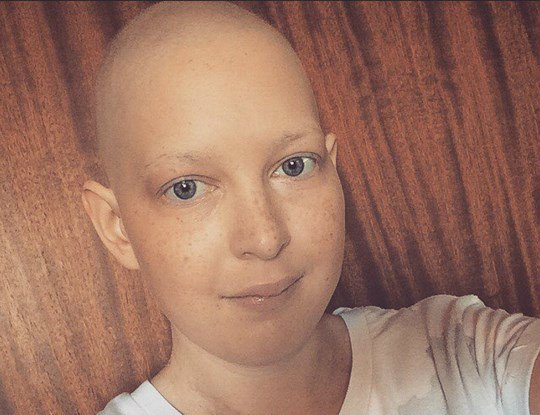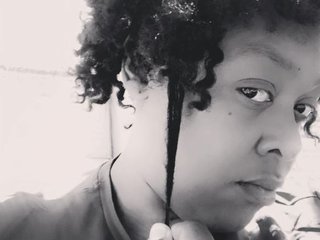How to cope with hair loss when you have cancer
Blood Cancer UK Ambassador Samantha Farr explains how she coped with the emotional impact of losing her hair and shares her tips for regrowing your hair after chemotherapy
When I saw it coming out in clumps and strands in the shower, I was devastated
I lost my hair during my battle with Hodgkin lymphoma. I didn’t just lose it once though. Because I relapsed, I lost it twice.
I’ve always had long thick hair, so when I saw it coming out in clumps and strands in the shower, I was devastated. Not only was I losing my hair but my eyebrows and eyelashes as well.
It didn’t change who I was. I was still me with or without hair
I tried to wait as long as possible before shaving my head. I finally did so just after I’d finished my first six months of chemotherapy. As tough as it was for me, it was probably harder for my family. When I shaved my head, it was an extremely emotional day and, of course, I cried. It was a shock to the system but it didn’t change who I was. I was still me with or without hair.

I wore a few wigs while my hair was growing back. I felt like me again and I had my little security blanket back. But, ultimately, wearing wigs didn’t help my hair grow.
Eventually, it did grow back. But the cancer came back as well. My second round of chemotherapy was a lot more intense, so I lost my hair way quicker than I had the first time. One morning, I woke up in hospital and was shocked by the clumps all on my pillow and in my bed. As soon as I got home, I knew it was time to shave it off again. It was hard, but I knew it was going to grow back.
It’s now been about three-and-a-half years since I finished treatment and my hair is back and long again. My plan is to keep growing and keep it as healthy as possible then I would love to be able to donate it to the Little Princess Trust.
How to look after your hair after chemo
Here are my personal tips for looking after your hair. Of course, everyone is different, so make sure you check with your doctor or nurse.
1. Don’t over wash your hair
It may seem a little strange, but wash it as little as possible – two to three times a week is the best. And dry shampoo will be your best friend.
2. Trim your new hair
When my hair first started coming back, I didn’t want to cut it because I was way too nervous for anyone to touch it. I did eventually get a trim because it was starting to resemble a mullet, and no-one wants to see that. The best thing you can do is go for regular trims to cut off the split ends. It’ll make it look so much tidier and you will feel so much better for it.
3. Avoid straighteners
When you notice your hair getting longer, you may want to try to straighten or curl it. But try not to – you could really damage it.
My hair came back wavy and I was so tempted to buy some of those tiny straighteners. But I resisted and it was one of the best things I did. You really don’t want to use any harsh products on your hair until it’s grown to a point you're happy with it.
Some stages of hair growth can be very frustrating. At some of the awkward stages before it had properly grown back, I’d get frustrated and want to shave it all off and start again.
It’ll take a long while for your hair to get where you want it to be, but be patient – it will get there.
4. Be patient
It’s hard to see other cancer patients who’ve just finished treatment the same time as you but their hair is growing way more faster than yours. Every person is different and everybody's hair grows at different stages.
My advice to just let your hair roots restore themselves after treatment so they're strong enough to produce healthy hair again. You'll see your hair flourish sooner rather than later.
5. Take care of your scalp
Caring for your scalp is super important. It’s best to use gentle haircare products, like a baby shampoo that's for your scalp but will also encourage hair re-growth. Blood flow also helps stimulate hair growth so give yourself a little head/scalp massage while in the shower. It’s best not to rub too much, but you can also stimulate blood flow by tapping your fingertips very quickly and gently on your head.
My scalp always used to itch when my hair was growing. I started to use organic products which were mild and didn’t contain the chemicals regular hair products have, which really helped my scalp.

Hair loss tips and stories
Find lots more information about looking after your hair during and after cancer treatment, and stories from other people who share their advice.
